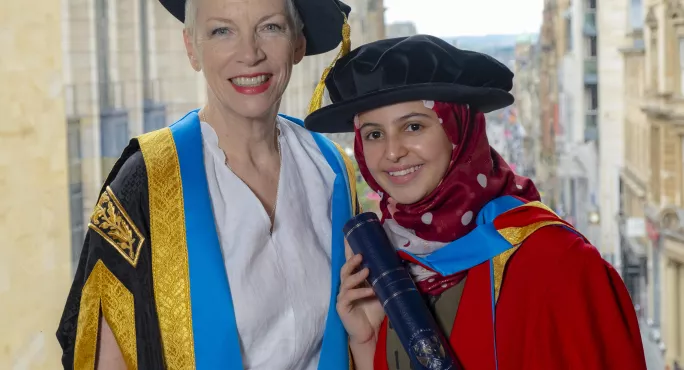- Home
- The refugee who fled with one thing - her schoolbooks
The refugee who fled with one thing - her schoolbooks

What’s the first thing you would stuff in your bag if your family was forced to flee their home? Food? Clothes? Bathroom necessities?
For Muzoon Almellehan there was never any doubt - it had to be her schoolbooks.
The young campaigner and Unicef ambassador - sometimes referred to as the “Syrian Malala” given her similar determination for all girls to get an education - threw 10 weighty textbooks along in her bag after her father told her to pack essentials, after they hurriedly prepared to leave their homeland for a refugee camp in Jordan.
From schoolgirl to Nobel prize: Malala tells her story in a picture book
Asylum seekers: ‘A group of schoolchildren showed me that Scotland is my home’
Quick read: ‘Schools, teachers and students will welcome refugee children’
Excelling in school despite fear of deportation: The Glasgow teen who achieved outstanding exam results
A six-month wait for lessons: The fate of Syrian refugees in the UK
Now aged 21 and a student in Newcastle, England - and having just been awarded an honorary degree from Glasgow Caledonian University (see picture above with university chancellor Annie Lennox) - Ms Almellehan was 14 when she had to flee her home in Syria. Amid the turmoil, however, she remained clear-sighted about her priorities.
In an interview with Tes Scotland, she said: “I thought if I lost my education it would be the end of my story, because education gives me hope at the time of darkness, at the time of knowing nothing about the future - because for me it was the hardest decision of my life to leave Syria, to flee my homeland.”
She knew “nothing” about what to expect in Jordan’s refugee camps in Jordan, and amid that uncertainty, education became “more important because I knew, through education, I can face challenges, I can dream and reach my goals [even though] I lost everything”.
Her attitude was that with her schoolbooks “I can have hope”. They gave her reassurance that, one day after completing her studies she can realise her “biggest dream” that “I can go back to my country and rebuild it again…Syria is my homeland and I don’t give up on my country.”
Yet, no one else fleeing for Jordan seemed to have taken any books and even her father, a schoolteacher, was taken aback when she revealed what she had packed. “You are crazy,” he said.
It was not uncommon for Syrian refugees to see people “die in front of their eyes”, and they were living without electricity or internet connections, carrying water to the camp, with no fans in summer or heating in the winter.
A general view, says Ms Almellehan, was that “education is not important right now, when we go back to Syria we have to continue with education”. But her unstinting belief in education - during three years in refugee camps for three years, including 18 months in the Za’atari camp in Jordan - came from growing up in a family of teachers and with grandparents who, despite not being formally educated themselves, were passionate about encouraging girls to go to school.
Ms Almellehan - who in 2017 was named one of Time magazine’s most influential teenagers in the world - has a message to young girls in the UK and other countries not accustomed to the sort of turmoil she escaped from in Syria, at times when they might be disillusioned with their studies or finding motivation hard at school.
“Be thankful that you have schools, good teachers, they go to school safely, and they have good schools, they will have good level of education, that they can go to good universities,” she said. “They must remember that there are so many children their age [who] don’t go to school… they don’t have teachers - and maybe they die when they go to school.
“My message to them is to feel lucky and to believe that education is the only way for them to achieve their goals in their lives.”
When asked what she sees as the most important qualities in a good teacher, Ms Almellehan immediately says “different skills to help students understand” - in other words, the flexibility to help all children learn, whatever individual problems they might bring to the classroom.
But she also sees another crucial quality in a teacher: “They must love their job. If you are a teacher and are passionate about teaching, you can teach the children in a very, very good way.”
Ms Almellehan has met with Malala Yousafzai several times - she was invited to Norway when her fellow campaigner received her Nobel prize - and says she is “inspiring” and that they have “lots of similarities”.
“We have different stories but the same goal: a quality education for every child - especially for girls - and to see a peaceful world one day.”
Keep reading for just £1 per month
You've reached your limit of free articles this month. Subscribe for £1 per month for three months and get:
- Unlimited access to all Tes magazine content
- Exclusive subscriber-only stories
- Award-winning email newsletters



